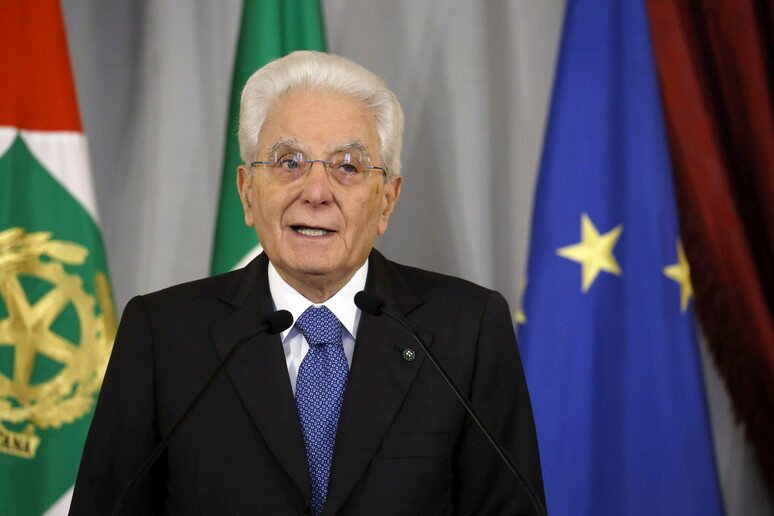Italian President Sergio Mattarella on
Sunday commemorated the 50th anniversary of the deadly Italicus
train bombing, saying it was part of a neofascist terror season.
"In the bloody chain of the terrorist season of the Italian
far-right, of which the Italicus massacre is a significant part,
its neofascist origin emerges, as stressed by a sentence of the
Cassation Court and by the conclusions of the parliamentary
inquiry commission on the P2 Lodge, although judicial
proceedings did not lead to the effective conviction of those
responsible", he said of the attack which killed 12 people in
the Apennines between Florence and Bologna in 1974.
The president went on to say that, "50 years ago, the terrorist
strategy that aimed to destabilize the Republic targeted the
Italicus train in San Benedetto Val di Sambro, sowing death and
pain.
"It was a train travelling to Germany, packed with travellers,
many of whom were migrants going back to work.
"Eleven passengers died in the fire that followed the explosion.
"The 12th victim was a railwayman, Silver Sirotti, gold medal
for civic value for his heroism: he lost his life while saving
many others.
"His generosity, together with his great courage, shows the
undying values of humanity and solidarity that the assassins and
their accomplices wanted to eradicate", the president stated,
expressing solidarity to the victims' families and to the many
who were injured in the attack.
At 1:23 on the night of Sunday 4, 1974, a bomb exploded on the
Rome-Munich train with 342 passengers on board, killing 12
people and wounding 48 others.
The neofascist organization Ordine Nuovo (New Order) claimed
responsibility for the bombing, but nobody was ever convicted
for the attack over lack of evidence.
The victims, aged 14 to 70, included three foreign tourists (a
Dutch, an Austrian and a Japanese), the members of a family - a
couple and their teen son - and the 25-year-old Silver Sirotti,
who was the first to rush to the hit train carriage to help
passengers and died amid the flames and smoke.
ALL RIGHTS RESERVED © Copyright ANSA











